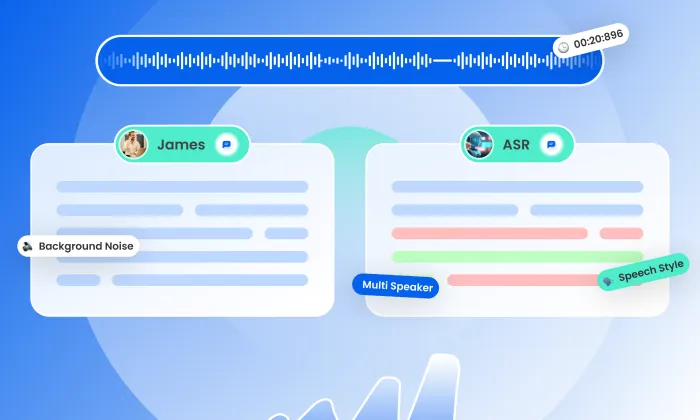What are the most common pitfalls when selecting an in-car speech dataset?
Speech Recognition
In-Car Systems
Data Selection
In-car speech datasets are essential for developing advanced automotive AI solutions like voice-activated controls and conversational agents. However, choosing the right dataset is challenging due to the unique acoustic environment inside vehicles. This discussion highlights common pitfalls in dataset selection while offering insights for better decision-making.
The Significance of Environmental Factors on Speech Recognition Performance
Understanding the vehicle's acoustic environment is crucial for AI applications. Inside a car, engine noise, road texture, and conversations can distort audio signals, complicating speech recognition tasks. This reality necessitates datasets that accurately mirror these conditions to ensure AI models perform reliably in real-world scenarios.
Avoiding Common Dataset Selection Pitfalls
- Dependence on Clean or Synthetic Data: Relying solely on studio or synthetic data often results in models that falter in real-world conditions. For example, a voice assistant trained in silent environments may struggle with engine noise and passenger chatter in a moving vehicle.
- Lack of Acoustic and Demographic Diversity: Diverse datasets are crucial to avoid bias. A dataset should include varied accents, age groups, and genders to ensure AI models are inclusive and effective globally.
- Insufficient Annotation and Metadata: Comprehensive annotations enhance model training. Datasets should include detailed metadata, such as speaker demographics and noise conditions, to improve understanding and adaptability.
- Ignoring Real-World Use Contexts: Datasets must align with specific application needs. A dataset intended for simple command recognition may not suffice for systems requiring nuanced emotional understanding.
- Neglecting Data Privacy Compliance: Adhering to privacy laws like GDPR is non-negotiable. Datasets must be anonymized and collected with consent to maintain legal compliance and user trust.
Strategies from Top Teams
- Diverse Data Collection: Leading AI teams use platforms like Yugo for crowd-sourced data collection, ensuring a variety of real-world driving conditions are represented. This approach ensures datasets are robust and reflective of true user environments.
- Rigorous Annotations: Thorough annotation practices, including contextual tags for noise and speaker emotions, enable nuanced AI model training, resulting in better performance.
- Customized Datasets: Tailoring datasets to specific vehicle models or user groups ensures relevance and enhances model effectiveness across different scenarios.
Real-World Use Cases and Impacts
For instance, a luxury electric vehicle manufacturer improved customer satisfaction by training a multilingual voice assistant with 500 hours of spontaneous in-car speech data, accurately reflecting real driving conditions. Similarly, an autonomous taxi service enhanced its emotion recognition capabilities using datasets capturing high-traffic conditions.
Future Trends in In-Car Speech Datasets
Looking ahead, in-car datasets are evolving to include emotion detection, multi-modal data integration, and voice biometrics, positioning FutureBeeAI at the forefront of innovation in automotive AI solutions.
Insights and What’s Next
Selecting the right in-car speech dataset requires navigating various pitfalls, from understanding unique acoustic environments to ensuring data privacy compliance. By leveraging expert insights and robust data collection methodologies, AI-first companies can develop more effective and user-friendly automotive AI solutions.
To advance your automotive AI projects, consider partnering with FutureBeeAI. Our tailored datasets and comprehensive annotation services are designed to enhance your model's performance, ensuring innovative and compliant automotive applications.
What Else Do People Ask?
Related AI Articles
Browse Matching Datasets
Acquiring high-quality AI datasets has never been easier!!!
Get in touch with our AI data expert now!








